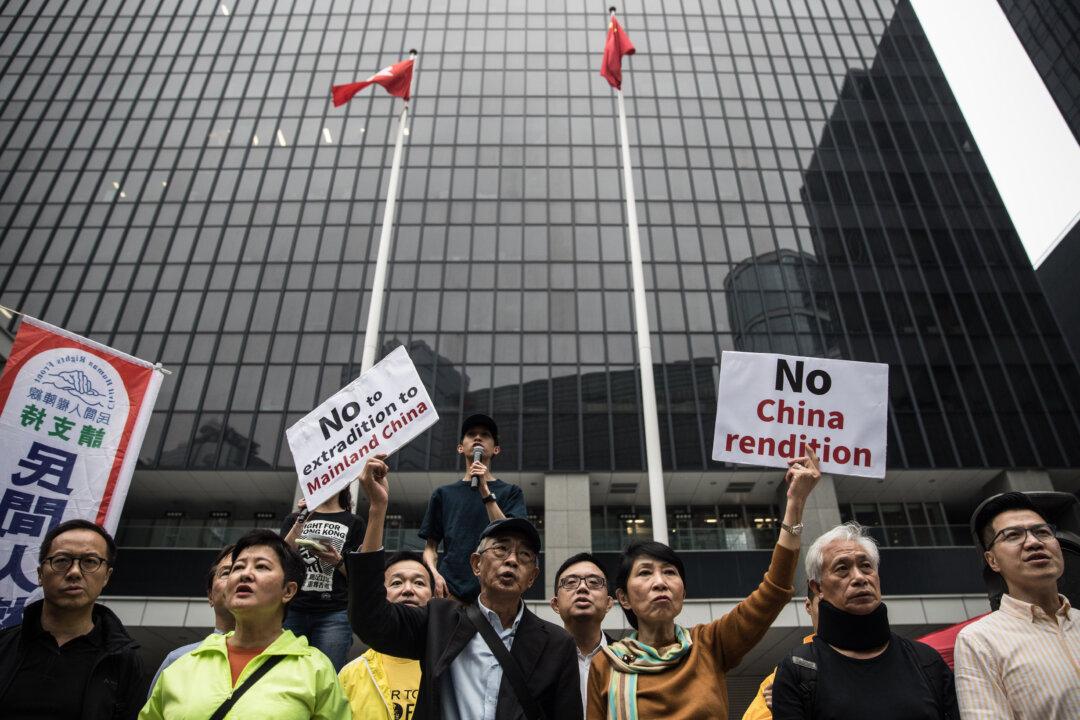HONG KONG—Some Hong Kong independence activists say they may be forced to leave the city if a proposed extradition law allowing suspects to be sent to mainland China for trial is enacted.
The government wants Hong Kong’s Legislative Council to quickly pass the Fugitives Offenders Ordinance amendment bill, which would allow case-by-case transfers of people to countries without extradition treaties, including China.
The bill says extradition can’t be used for political and religious offenses, and that safeguards such as court oversight over extradition requests will ensure rights are upheld.
But Hong Kong’s small band of independence activists—who have railed against China’s tightening grip on their city’s autonomy and freedoms and say Hong Kong should be its own country—sense peril.
“In the future, no matter which fugitives China seeks to extradite, Hong Kong won’t be able to say no,” said Alan Li, 27, a former leader of independence group Hong Kong Indigenous.
Li is in Germany after being granted political asylum there in a landmark case that has underscored growing international concern about Hong Kong’s activists.
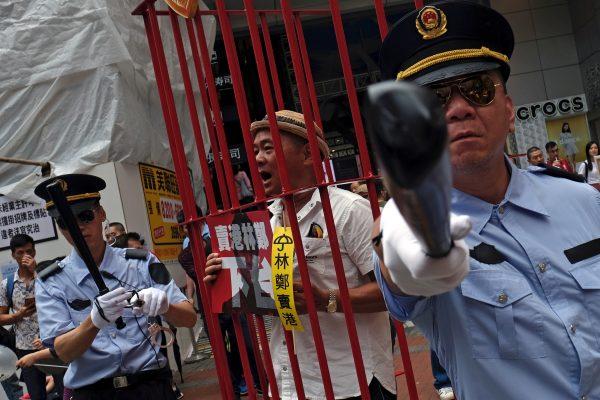
“We can’t trust the Hong Kong government,” he added.
“We will see more and more people being granted political asylum in the future,” Li said via phone from Germany, noting that it was a rigorous process.
‘Inalienable’
China considers Hong Kong to be an “inalienable” part of the country, so calls for independence are anathema to China’s Communist Party leaders.But freedom of expression and assembly—not protected in mainland China—were enshrined in Hong Kong’s mini-constitution when the former British colony returned to Chinese rule in 1997.
Britain and Canada said in a news release on May 30 that the extradition bill could hurt local freedoms.
Zhang Xiaoming, the director of China’s Hong Kong and Macau Affairs office, said that there is ‘zero tolerance’ for activists who seek to undermine China’s sovereignty.
The disconnect between what is allowed in Hong Kong but harshly punished in the mainland has added pressure to independence activists. Chinese leaders dub them “separatists”—a pursuit that would make them criminals in the mainland.
Paladin Cheng, an outspoken leader of the independence movement who lives alone in a ramshackle rooftop flat in Hong Kong, said that if the government doesn’t scrap the law, there could be a backlash.
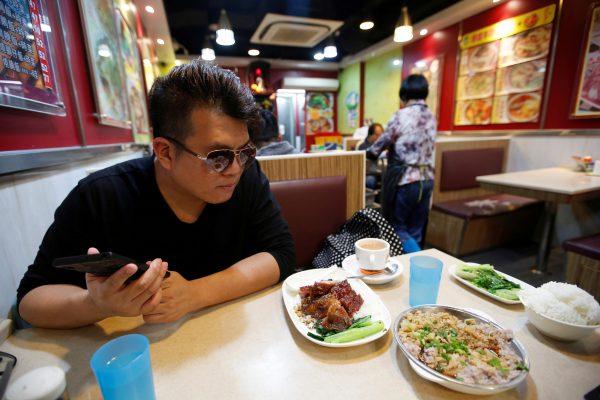
“This China rendition law represents the ’mainlandization' of Hong Kong,” said Cheng, whom police often follow on the streets and during protests.
“If the Chinese government really continues to make Hong Kong more similar to the mainland, even more people will support the idea of Hong Kong independence,” he said.
The independence movement peaked in 2016, when two pro-independence activists, Baggio Leung and Yau Wai-ching, won Legislative Council seats, earning 7 percent of the popular vote in some districts.
Since then, authorities have moved to shut localists out of local politics.
Leung and Yau were removed from public office, dozens of others have been kept from running in local elections, and one pro-independence group was banned last year on national security grounds.
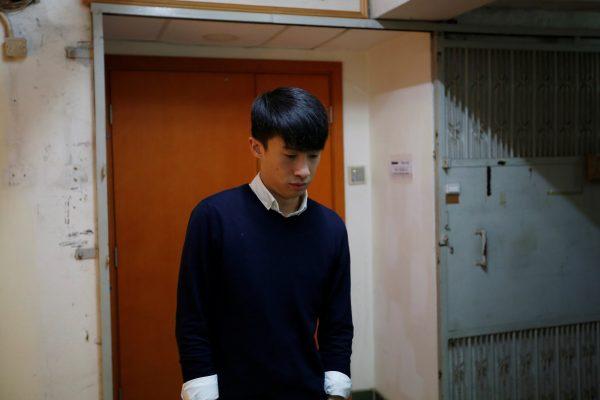
“The atmosphere was really bad. And up to today, nothing has changed. Many of my friends have been harassed, imprisoned, or forced into exile,” said Leung, 32.
Hong Kong Chief Executive Carrie Lam said in announcing the ban that it was necessary on the grounds of national security, public order and public safety. She has also emphasized that Hong Kong respects electoral freedoms.
Leung said that on the last day of 2018, five men forced their way into an office run by fellow activists, smashing open the door and taking some flags. After reviewing CCTV footage of the incident, he filed a police report.
A Hong Kong police spokesman confirmed a break-in had occurred, but said no one had been arrested so far.
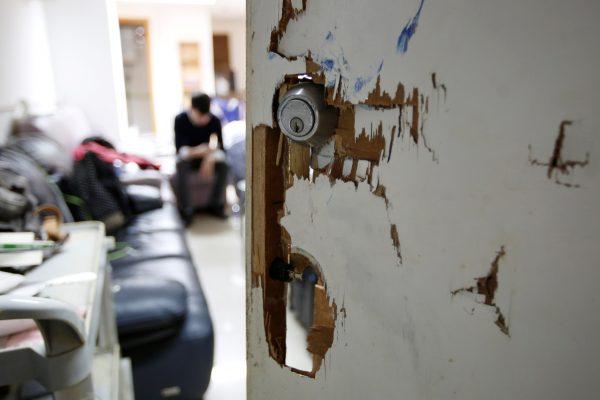
‘Shrinking Space’
A German Foreign Office spokeswoman, Maria Adebahr, said Berlin was “increasingly worried about the shrinking space the opposition enjoys and the creeping erosion of the freedom of opinion.”She declined to specifically discuss Li’s case.
Some activists think the extradition law, even if not immediately deployed against them, would still weigh psychologically.
“The Chinese Communist Party and Hong Kong government have hinted several times that whoever is anti-Communist will be a target,” said Wayne Chan, 29, another independence advocate. “Pro-independence parties may be forced into exile.”
Despite the potential danger, some activist say they'll stay and fight.
“No one knows what is next for Hong Kong,” said Tony Chung, 18, who was assaulted twice on the streets last year by four men who were later arrested.
The men are free on bail; police say they are investigating.
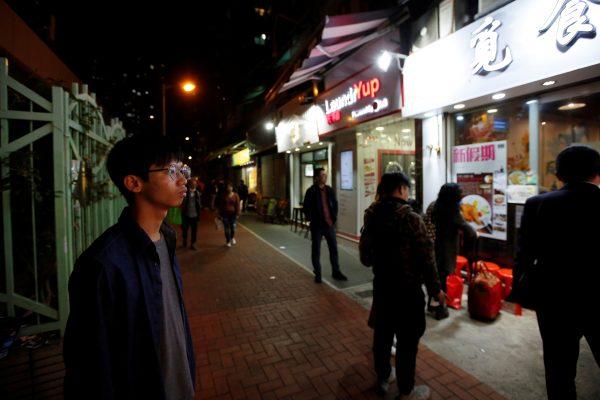
Chung was arrested this month over grabbing a small Chinese flag at a protest and breaking the stick. He was charged with criminal damage, which can be punished by up to 10 years in prison.
“Hong Kong has changed completely from the place I knew,” he said. “But I don’t want to give up and leave right now.”
